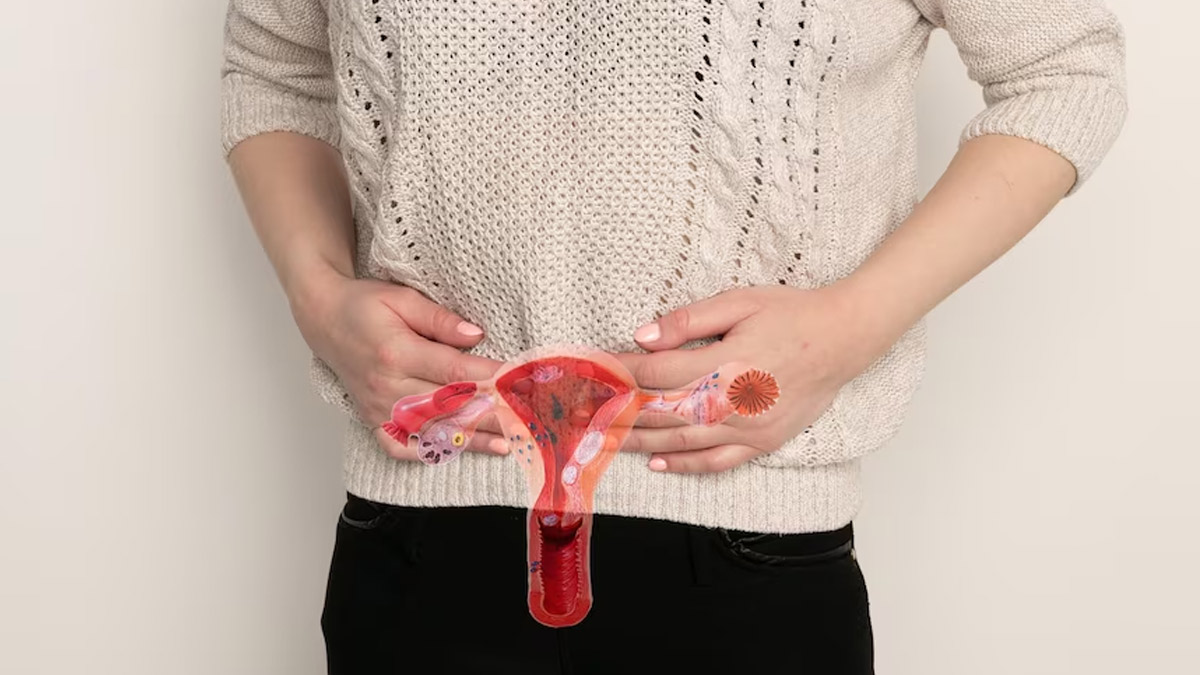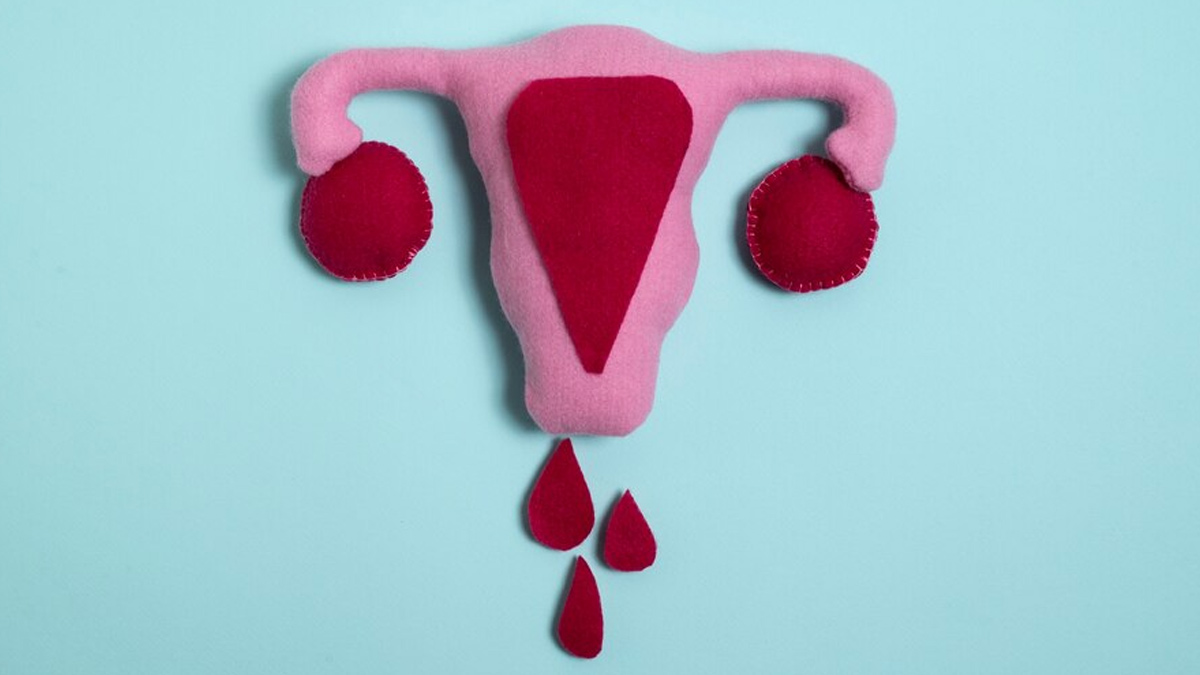
The female reproductive system is complex. It contains several organs, including the uterus, ovaries, fallopian tubes, cervix, and vagina, which enable various bodily functions, such as menstruation, reproduction, and hormonal balance. But because of the diversity of features of the female reproductive system, there is a constant risk of various reproductive problems.
Table of Content:-
Abnormal Uterine Bleeding (AUB) is one such complication that occurs in women of childbearing age. If left untreated, the condition can pose several health risks, including anaemia, a condition in which the body does not have enough healthy Red Blood Cells (RBCs).
Also Read: Irregular Menstrual Cycle: Possible Causes And Treatment Options
What Is Abnormal Uterine Bleeding?

In an interaction with the OnlyMyHealth team, Dr Shipra Kunwar, Consultant-Obstetrician and Gynaecologist, Manipal Hospital, Kharadi, Pune, describes AUB as bleeding that occurs at an unusual time or lasts longer than normal.
According to her, the condition can show up as serious bleeding during or after menopause, or bleeding between periods.
Hormonal abnormalities, uterine fibroids, polyps, endometriosis, pelvic inflammatory disease, blood clotting disorders, and certain drugs like hormone therapy or blood thinners are some of the causes of AUB.
Research suggests that up to one-third of women will experience AUB in their lives, with irregularities most commonly occurring at menarche (the first occurrence of menstruation) and perimenopause, the time around menopause when your ovaries gradually stop working.
Dr Kunwar says that a woman typically gets her period every 28 days, but different factors can cause this to happen every 24 or 34 days.
“Normally, menstrual flow lasts around 4–7 days. Girls who have just started menstruating may have periods that are spaced anywhere from 21–45 days apart or even more apart. As women reach their 40s, they may start having periods less frequently or with shorter intervals between them,” she explains.
The point is that women should be able to identify variations in their menstrual cycles, especially when they are unusual. Sometimes, AUB may be mistaken for a normal period, and this can increase a person’s risk of complications.
How To Recognise AUB?

There are many ways in which AUB can occur in the body.
- It can show up as spotting or bleeding between the regular periods.
- It might happen after having sex.
- The bleeding might last for more days than usual.
- AUB can even occur after menopause, although this is not as common.
The Risk Of Anaemia
Anaemia can arise from severe AUB-related blood loss, said Dr Kunwar.
Anaemia is a condition that occurs when the body fails to produce enough healthy RBCs, which supply oxygen to the tissues.
As per the World Health Organization (WHO), anaemia is prevalent among young children, menstruating adolescent girls and women, and pregnant and postpartum women. It affects 40% of children 6–59 months of age, 37% of pregnant women, and 30% of women 15–49 years of age worldwide.
Some of the common symptoms of anaemia include:
- Feeling exceptionally weak or exhausted
- Difficulty performing daily activities due to muscle weakness
- Dizziness or lightheadedness
- Shortness of breath
- Pale skin
- Irregular heartbeat
- Headaches
Also Read: Menstrual Health: Expert Decodes 5 Menstrual Disorders
On Managing Abnormal Uterine Bleeding And Anaemia

Treatment for anaemia and abnormal uterine bleeding (AUB) usually includes treating the bleeding as well as the underlying issues that are causing it, said Dr Kunwar.
Medical treatments include:
- Hormonal medications, such as progestin therapy, hormone replacement therapy, or birth control tablets
- NSAIDs, or nonsteroidal anti-inflammatory medications
- Tranexamic acid, which increases blood coagulation and helps to control excessive menstrual bleeding
- Gonadotropin-Releasing Hormone (GnRH) Agonists, which suppress ovarian function and help manage bleeding associated with conditions like fibroids or endometriosis
Surgical Interventions include:
Endometrial ablation: A procedure to remove the uterine lining, which can reduce or stop menstrual bleeding.
Uterine Artery Embolisation (UAE) or Myomectomy: Surgical procedures to remove uterine fibroids, which can contribute to AUB.
Hysterectomy: In severe cases where other treatments have failed or if there is a significant risk to health, removal of the uterus may be recommended.
Iron supplementation: Iron supplements are often prescribed to address anaemia and replenish iron stores in the body due to chronic blood loss.
Lifestyle tips:
Healthy Diet: Eating a diet high in iron, vitamins, and minerals can help treat anaemia and improve overall health.
Hydration: To maintain blood volume and prevent dehydration, it's important to drink plenty of fluids, particularly when menstruation is heavy.
Regular Exercise: Regular physical activity can enhance general well-being and potentially reduce certain AUB symptoms.
A Final Word
To identify the most effective management strategy for AUB and anaemia, Dr Kunwar says it is imperative to speak with a doctor. She recommends regular monitoring by doctors and blood tests to check iron levels.
Also watch this video
How we keep this article up to date:
We work with experts and keep a close eye on the latest in health and wellness. Whenever there is a new research or helpful information, we update our articles with accurate and useful advice.
Current Version